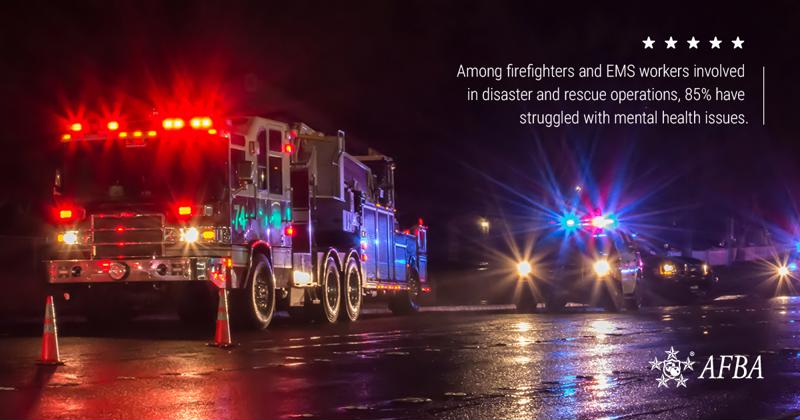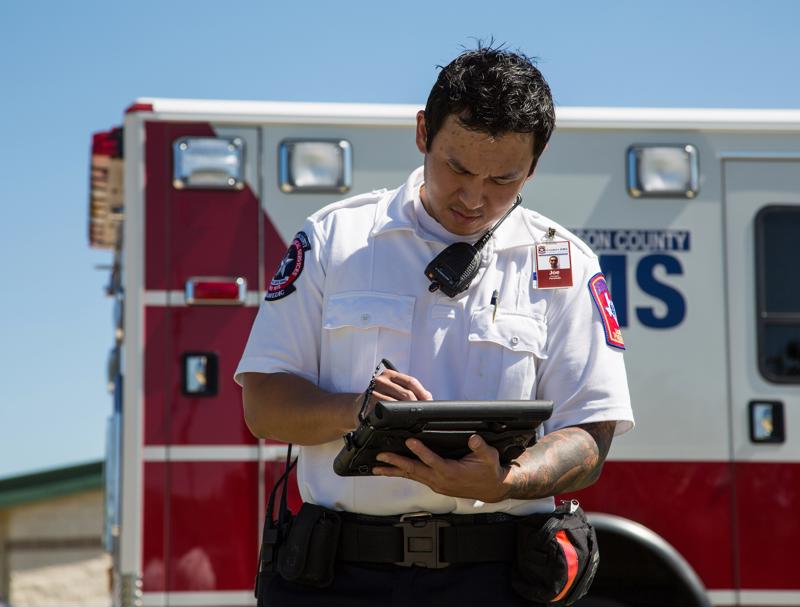The state of mental health for first responders is a dire one. In a 2019 article published on the Journal of Emergency Medical Services (JEMS) website, researchers deemed the issue a national crisis, citing the suicide epidemic among firefighters and emergency medical professionals.

Mental health crisis among first responders
Between 2014 and 2017, more first responders died by suicide than by job-related fatalities. The Los Angeles Times reported that at least 115 EMS workers and firefighters took their lives in 2017. According to data from the Centers for Disease Control and Prevention (CDC) cited by JEMS, first responders are at 10-times greater risk of suicidal thoughts or attempts than members of the general public.
In addition to the suicide risk, countless first responders are struggling with a lack of sleep, behavioral disorders and substance abuse as a direct result of the daily traumas they face on the job. The trauma of bearing witness to harrowing incidents of death and loss, and of being unable to save lives in devastating circumstances, undoubtedly takes a toll.
Among firefighters and EMS workers involved in disaster and rescue operations, 85% have struggled with mental health issues and 75% have experienced some symptoms of psychological trauma, according to the National Council for Behavioral Health. And yet, because the mental and emotional scars are often invisible, those suffering are not encouraged to seek help.
Stigmatization and resource limitations in rural communities
Rural areas, in particular, have seen a notable lack of utilization of mental health services, largely due to the stigma surrounding mental and emotional wellness.
"[T]he stigmatization alone has created a boundary between the first responders and the need for mental healthcare," firefighter and clinical psychologist Asa Don Brown, Ph.D., wrote in Psychology Today.
A recent study revealed that nearly half of first responders fear employer retribution for addressing their mental health needs and seeking professional counseling. As such, they deny themselves from accessing services that could make a difference.
Although the U.S. has seen growing mental health awareness in recent years, "awareness does not necessarily translate to action," JEMS authors noted.
Additionally, rural communities face a severe lack of mental health resources. According to the U.S. Health Resources and Services Administration, rural communities comprised over half of the Mental Health Professional Shortage Areas in 2018. Specialist caregivers are quite literally few and far between, making appointments prohibitive due to high costs and lengthy transit times.
A path forward
For rural first responders struggling with mental health, the two main barriers are the lack of mental health resources and the lack of awareness about those resources that are available. As such, mental health professionals and first responder advocates urge rural caregivers and first responder communities to take action.
They recommend that employers pinpoint the barriers preventing emergency workers from accessing the care that they need, and work to eliminate those barriers and bridge the gaps. Because many emergency workers don't know how to begin to seek help, this could involve proactive education initiatives.
Simultaneously, rural communities and employers should work to increase and improve the mental health services available. To make up for the lack of mental health care providers within rural regions, telehealth services can also be adopted. Once again, prioritizing education and giving those in need access to such services is key.
Furthermore, when raising awareness and changing the perception of mental health for first responders, it's important to relay this message: Seeking help is not a sign of weakness but a sign of incredible strength.

